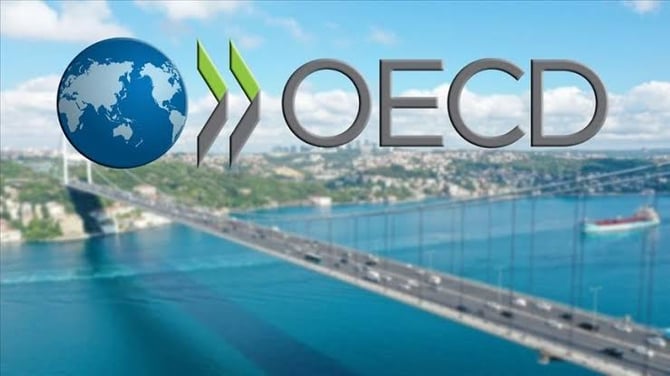OECD Predicts Weak Global Growth as High Rates Bite

The Organization for Economic Co-operation and Development (OECD) raised its global economic outlook for 2023 on Tuesday but cut the growth forecast for next year as interest-rate hikes aimed at curbing inflation take their toll.
The world economy is now expected to grow 3.0% this year, up from the 2.7% forecast in the OECD’s June outlook. However, it said global growth was projected to remain "sub-par," slowing to 2.7% next year — down from 2.9% in the previous forecast.
Analysts expect that after a stronger-than-expected start to 2023, helped by lower energy prices and the reopening of China, global growth is likely to moderate as the impact of tighter monetary policy becomes increasingly visible.
The OECD noted in its comments that inflation is projected to moderate gradually over 2023 and 2024 but remain above central-bank objectives in most economies.
The European Central Bank raised a key interest rate to a record high last week but hinted this might be its last hike, while the US Federal Reserve is expected to announce a pause in its own campaign on Wednesday.
What does this mean for me?
Consumer price increases have eased in the United States and the eurozone but remain well above the Fed's and ECB's two-per cent targets, and oil prices have rebounded in recent weeks.
The OECD also warned that "a sharper-than-expected slowdown in China is an additional key risk that would hit output growth around the world."
The organization lowered its forecasts for the eurozone, with growth of 0.6% this year and 1.1% in 2024 as the German economy struggles.
More News
.webp)
Japan’s Rate Shift Is Rippling Through Global Bond Markets
1 week ago

China’s Growth Engine Stalls as Consumers and Investors Pull Back
2 weeks ago

Egypt’s Recovery Gains Traction as Household Pressure Lingers
3 weeks ago

OECD Warns AI and Tariffs Will Test the Global Economy
4 weeks ago

Zero Tariffs, Higher Drug Bills as US and UK Reset Pharma Trade
4 weeks ago

Catastrophe Bonds Go Global as Climate Risk Meets Yield Hunting
1 month ago
.webp)
Canada Shields Steel and Lumber Industries From Tariffs
1 month ago

Trump Drops Selected Tariffs in Response to Inflation Pressures
1 month ago